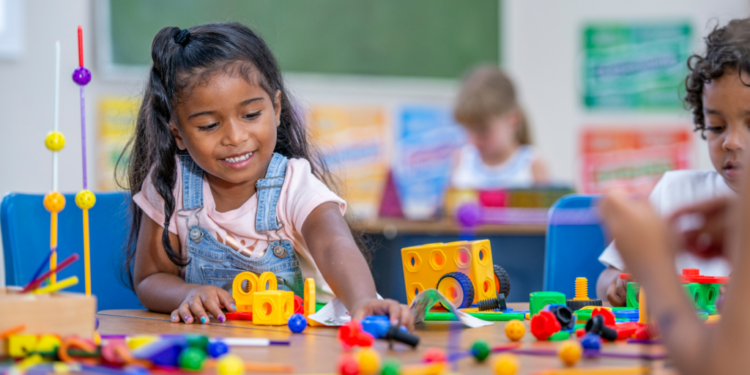The early years of a child’s life are pivotal for their overall development. These formative years set the foundation for lifelong learning, making it essential to employ effective teaching methods. One of the most impactful approaches is using playful and intuitive learning techniques, particularly beneficial for right-brain education. These methods make learning enjoyable and promote cognitive, social, and emotional growth.
These approaches help children grasp concepts more naturally and effectively in early childhood learning. They leverage a child’s innate curiosity and desire to explore, turning everyday activities into valuable educational experiences. This article explores how early childhood schools utilise playful and intuitive methods to enhance right-brain development and improve early education.
1. Stimulating Creative Thinking
One of the primary goals of right-brain education is to stimulate creative thinking. Early childhood schools achieve this through a variety of playful activities. Art projects, music sessions, and imaginative play are integral to the curriculum. These activities encourage them to think outside the box, develop their imagination, and express themselves creatively. Engaging in such activities teaches them to approach problems from different angles and develop innovative solutions, which are crucial skills for their future academic and personal lives. Hands-on projects and collaborative tasks further enhance their problem-solving abilities. Additionally, these activities boost confidence and help them understand diverse perspectives. Engaging in such activities teaches children to approach problems from different angles and develop innovative solutions, which are crucial skills for their future academic and personal lives.
2. Enhancing Spatial Awareness
Spatial awareness is another crucial aspect of right-brain education. Early childhood schools use intuitive learning methods such as building blocks, puzzles, and interactive games to develop this skill. These activities require them to understand shapes, sizes, and spatial relationships, which helps improve their spatial intelligence. Enhanced spatial awareness is essential for subjects like mathematics and science, everyday tasks, and problem-solving abilities.
3. Fostering Emotional Intelligence
Emotional intelligence is a critical component of right-brain education, and early childhood schools strongly emphasise developing this skill. Playful and intuitive activities like role-playing and group games help children understand and manage their emotions. These activities teach them empathy, cooperation, and effective communication. They build solid emotional foundations that benefit them throughout their lives by learning to navigate their emotions and interact positively with peers.
4. Encouraging Holistic Development
Holistic development is essential for a well-rounded education, and playful and intuitive methods support this goal. Early childhood schools incorporate activities that promote physical, cognitive, and emotional growth. For example, outdoor play and movement-based activities enhance physical development and coordination. Storytelling and imaginative play boost mental abilities and language skills. Also, kids are more likely to express themselves creatively and emotionally through art and music. By integrating these diverse activities, schools ensure that they develop in a balanced and comprehensive manner.
5. Creating a Joyful Learning Environment
A joyful learning environment is crucial for effective education. Early childhood schools recognise the importance of creating a positive and engaging atmosphere for young learners. Playful and intuitive methods make learning fun and exciting, which helps them develop a love for learning. Kids who enjoy learning are more likely to be motivated and engaged. This intrinsic motivation is vital for lifelong learning and academic success. By fostering a joyful environment, schools lay the groundwork for positive attitudes towards education that last a lifetime.
Early childhood learning schools effectively utilise playful and intuitive learning methods to enhance right-brain education. By integrating these methods into their curriculum, early childhood schools ensure that kids receive a well-rounded education that prepares them for future success. Embracing these innovative teaching techniques supports overall development and helps them build the skills necessary to thrive academically and personally.






